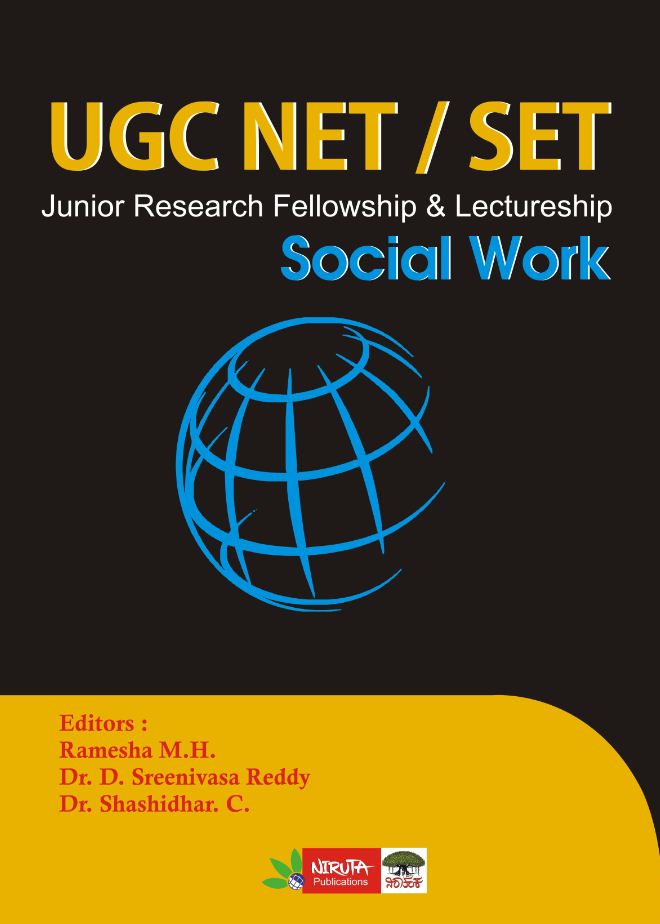|
Multiple Choice Questions 1. Who was the first professor of Social Administration, appointed at the London School of Economics? a. Richard Titmus b. Alcock c. Miller d. George Ans :- A 2. Historically social policy relates to................ a. About interventions of a socially redistributive kind b. Social regulatory kind c. Social rights kind d. All the above Ans :- D 3. Social policy relates to ................. a. Guidelines for the changing, maintenance or creation of living conditions those are conducive to human welfare. b. Economic development c. Political development d. Religious development Ans :- A 4. Social policy is concerned with ___ a. Intervention by governments and other organizations to meet human needs b. Industrial development c. Political development d. Economic development Ans :- A 5.According to Devereux and Cook, social policy intervenes in the following areas a. Social sector and Social insurance b. Social protection c. Social service and social rights d. All the above Ans :- D 6. What are the objective of Social Policy? a. Social change b. Social integration c. Improvement of quality of life d. All the above Ans :- D 7. Social policies deal with issues such as a. Poverty b. Poor housing c. Disability d. All the above Ans :- D 8. Social policy is part of _____ a. Public policy b. Economic policy c. Political policy d. Religious policy Ans :- A 9. Social sector includes__ a. Health & Education b. Water and sanitation c. Housing d. All the above Ans :- D 10.The Central Social Welfare Board was established in the year____ a. 1980 b. 1970 c. 1950 d. 1953 Ans :- D 11.The first five year plans duration was............. a. 1951-55 b. 1950-55 c. 1955-60 d. 1953-58 Ans :- A 12. Social insurance includes____ a. Pensions b. Unemployment benefits c. Disability allowances d. All the above Ans :- D 13. Social protection does not include a. Food subsidies b. Public works projects c. Supplementary feeding d. Alms Ans :- D 14. Social services will not include a. Care for vulnerable groups b. Care for weaker section c. Care for affluent d. Care for needy Ans :- C 15. Social rights will not include a. Child b. Labour c. Women’s rights d. Care for political section Ans :- D 16.Welfare programmes based on Social Policy in India are not provided in one of the sectors mentioned below: a. Health b. Entertainment c. Employment d. Education Ans :- B 17.Which one of the following programmes is not based on Affirmative Action Policies? a. Programmes to meet economic needs of poor b. Specific programmes for the development of Scheduled Castes c. Programmes for Industrial Growth d. Programmes for the Welfare of Women Ans :- C 18.Assertion (A): The role of professional social worker is empowering and capacity building of the oppressed and marginalized sections of society Reason (R): Professional social workers have requisite skill and sensitivity to deal with the problems of such sections of society. a. Both (A) and (R) are correct and (R) is the explanation of (A) b. Both (A) and (R) are not correct c. (A) is correct, but (R) is wrong d. (A) is not correct, but (R) is correct Ans :- A 19.Accountability in governance refers to a. The ability of citizens to hold leaders, government and public organizations to account b. The ability of citizens to open accounts in the bank c. The national income account that show profit and loss of the government d. The behaviour of chartered accountants in corporate banks Ans :- A 20.Panchayati Raj institutes in India have brought about which one of the following? a. Eradication of untouchability b. Spread of land ownership to depressed classes c. Formal representation of the weaker sections in village governance d. Spread of education to the masses Ans :- C 21.Which article of Indian Constitution lays down the provision of free and compulsory education for children? a. 45 b. 46 c. 47 d. 48 Ans :- A 22. Probation means: a. Release on licence b. Release on bail c. Conditional suspension of punishment d. Suspension of punishment Ans :- C 23.Assertion (A): Social Workers working with minorities requires the knowledge and indepth understanding of the effects of oppression on minority groups Reason (R): Social Workers are duty bound to serve the oppressed and marginalized a. Both (A) and (R) are true and (R) is the correct explanation of (A) b. Both (A) and (R) are true and (R) is not the correct explanation of (A) c. (A) is true, but (R) is not true d. (A) is not true, but (R) is true Ans :- A 24. Social Legislation attempts to (a) Justice as well as social security (b) Anticipate social needs (c) Provide for change in social order (d) All the above Ans :- D 25.Institutional Redistributive Model of Social Policy is associated with (a) Capitalist State (b) Communist State (c) Totalitarian State (d) Welfare State Ans :- D Subscribers please login to access full text of the article
New 1 Year Subscription to Digital Archives at just Rs.500
0 Comments
Your comment will be posted after it is approved.
Leave a Reply. |
UGC NET Training for
Social Work We are pleased to announce the training programme on “UGC NET Social Work”. The details of which are as under. It covers in detail the UGC NET Social Work syllabus and previous question papers.
Categories
All
|
SITE MAP
SiteTRAININGJOB |
HR SERVICESOTHER SERVICESnIRATHANKA CITIZENS CONNECT |
NIRATHANKAPOSHOUR OTHER WEBSITESSubscribe |
MHR LEARNING ACADEMY
50,000 HR AND SOCIAL WORK PROFESSIONALS ARE CONNECTED THROUGH OUR NIRATHANKA HR GROUPS.
YOU CAN ALSO JOIN AND PARTICIPATE IN OUR GROUP DISCUSSIONS.
YOU CAN ALSO JOIN AND PARTICIPATE IN OUR GROUP DISCUSSIONS.
|
|



 RSS Feed
RSS Feed





